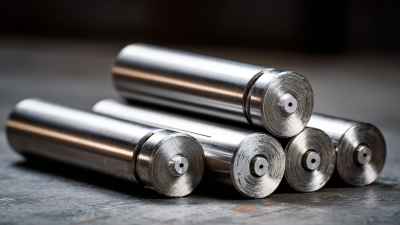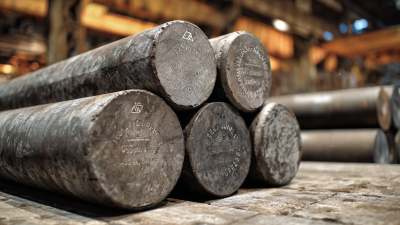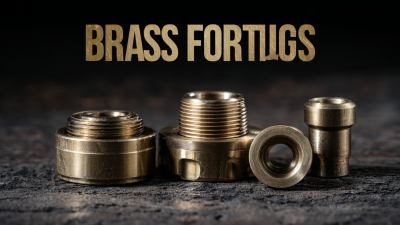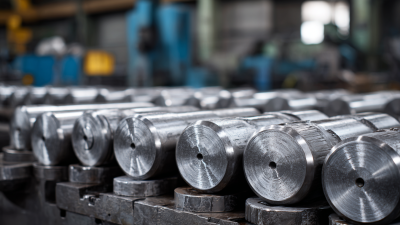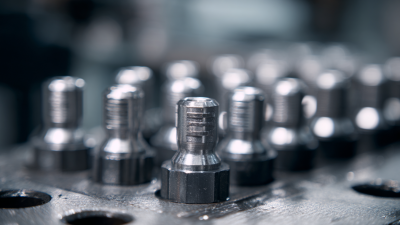Leave Your Message
-
Phone
-
E-mail
In the competitive landscape of modern manufacturing, the choice of materials and components can significantly impact overall efficiency and product quality. One key player in this arena is the forged cylinder, a robust and reliable solution that has emerged as a cornerstone for successful manufacturing processes. Forged cylinders are known for their superior strength, durability, and resistance to wear and tear, making them ideal for a wide range of applications in industries such as automotive, aerospace, and heavy machinery. This ultimate guide explores seven compelling reasons why incorporating forged cylinders into your manufacturing strategy can enhance your operational performance. From improved material integrity to cost-effectiveness and better machinability, understanding the benefits of forged cylinders is crucial for companies looking to innovate, streamline production, and ultimately achieve lasting success. Join us as we delve into the essential role that forged cylinders play in driving manufacturing excellence.
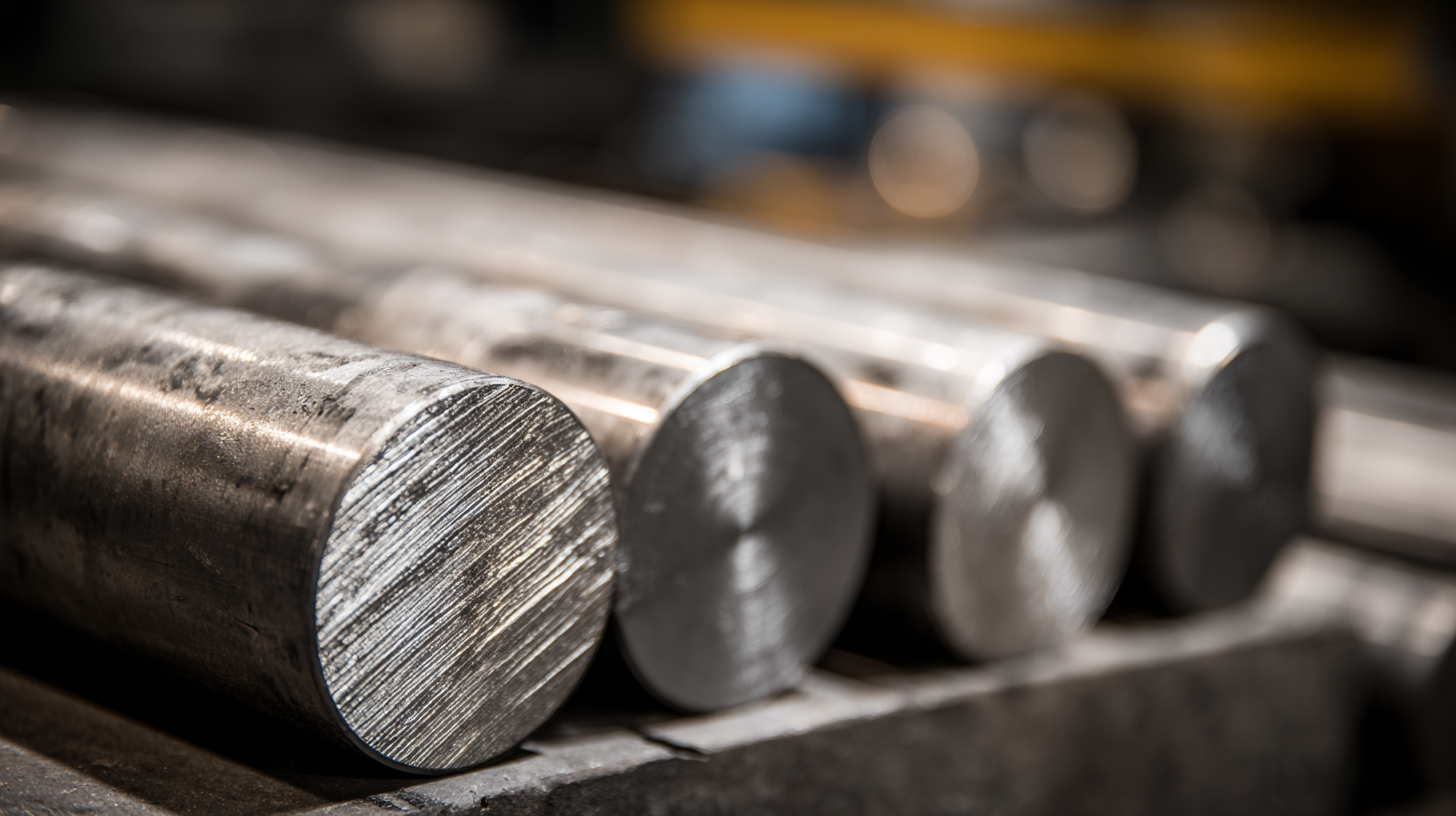
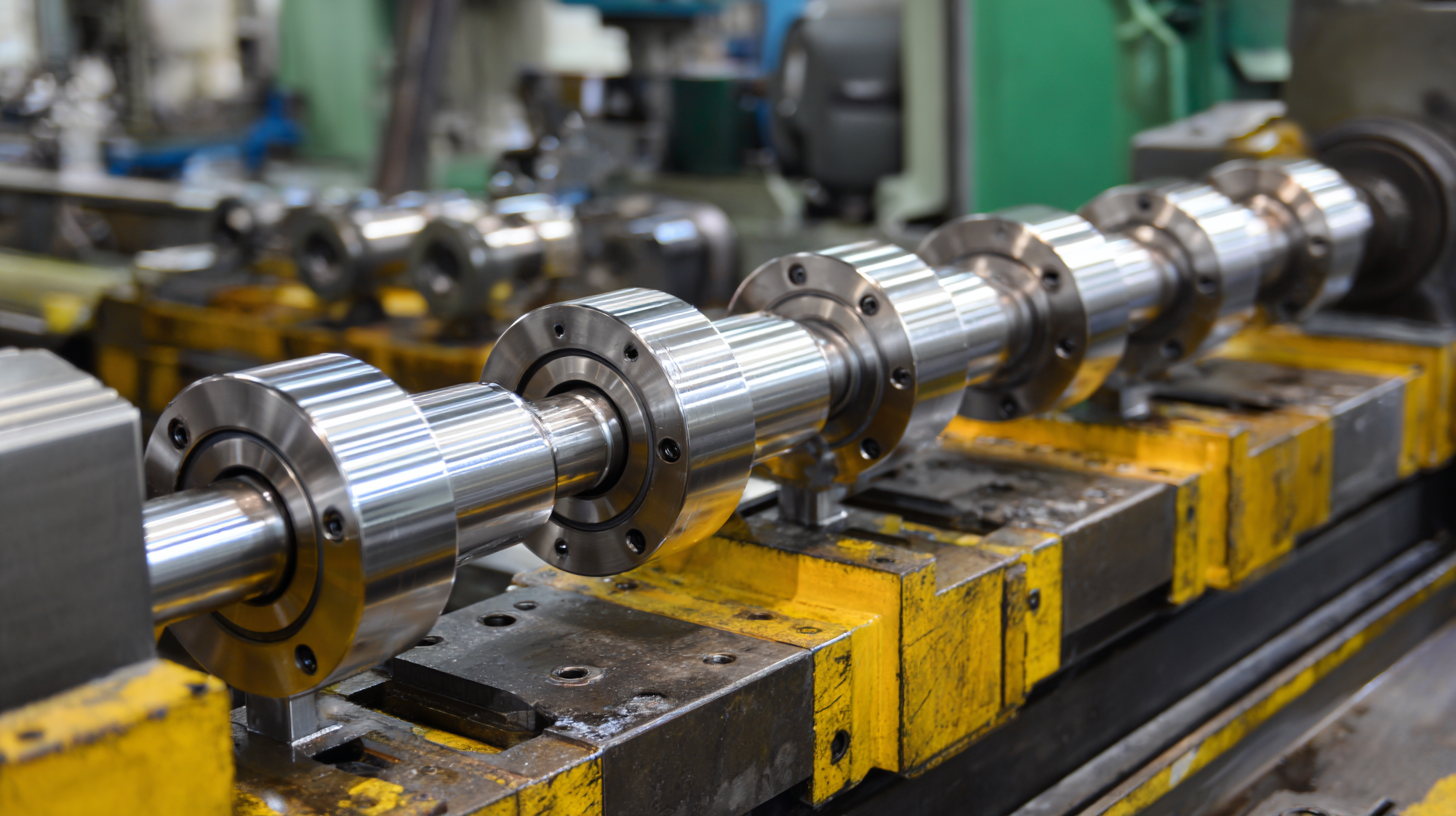 Forged cylinders play a critical role in industrial production, offering enhanced strength and durability that are essential for high-performance manufacturing. Recent industry insights indicate that forged parts are increasingly recognized for their significance in various applications, from automotive components to heavy machinery. According to a recent trade fair for castings and forgings, the buzz surrounding these processes underscores a collective shift towards more resilient and efficient production methods. The event highlighted advancements in bespoke forging technologies that are crucial for meeting the evolving demands of modern manufacturing.
Forged cylinders play a critical role in industrial production, offering enhanced strength and durability that are essential for high-performance manufacturing. Recent industry insights indicate that forged parts are increasingly recognized for their significance in various applications, from automotive components to heavy machinery. According to a recent trade fair for castings and forgings, the buzz surrounding these processes underscores a collective shift towards more resilient and efficient production methods. The event highlighted advancements in bespoke forging technologies that are crucial for meeting the evolving demands of modern manufacturing.
Moreover, innovations in the manufacturing sector, particularly within the steel industry, illustrate the growing reliance on forged components. Reports suggest that countries like India are harnessing artificial intelligence and sustainable technologies to improve the performance of forged materials. This pivot not only boosts the mechanical properties of products like crankshafts but also contributes to a more self-sufficient and robust manufacturing landscape. As industries forge ahead towards sustainability, the strategic importance of forging processes becomes evident, heralding a future driven by resilience, efficiency, and innovation in production.
Forged cylinders play a pivotal role in the manufacturing process, particularly in industries related to engine production. Without these components, manufacturers frequently face challenges that can greatly affect the performance and reliability of their products. One common issue encountered is the inability to meet stringent material strength requirements. Forged cylinders are engineered to withstand significant stress and pressure, reducing the risk of failure during operation. This is particularly critical in high-performance diesel engines, where the demand for durability and reliability is paramount. Without the use of forged cylinders, manufacturers may find their engines susceptible to breakdowns, ultimately damaging their reputation in a competitive market.
Another significant drawback of not utilizing forged cylinders is the impact on delivery timelines. In an industry where quick turnaround is essential, reliance on weaker materials can lead to delays caused by part failures or the need for repeated adjustments. This not only hampers production schedules but can also strain supplier relationships. Thus, the absence of forged cylinders can result in increased costs and a loss of market share. By integrating forged components into their manufacturing processes, companies can effectively mitigate these risks and ensure a robust and reliable end product.
Forged cylinders are critical components in various manufacturing processes, significantly enhancing product quality and durability. The forging process involves applying high pressure to metal, which alters its internal structure and improves its strength. This method produces a denser, more uniform grain structure, resulting in components that can withstand higher stress and temperature variations. Consequently, products that utilize forged cylinders are often more reliable and exhibit better performance over time, reducing the likelihood of failures that could disrupt production schedules and increase costs.
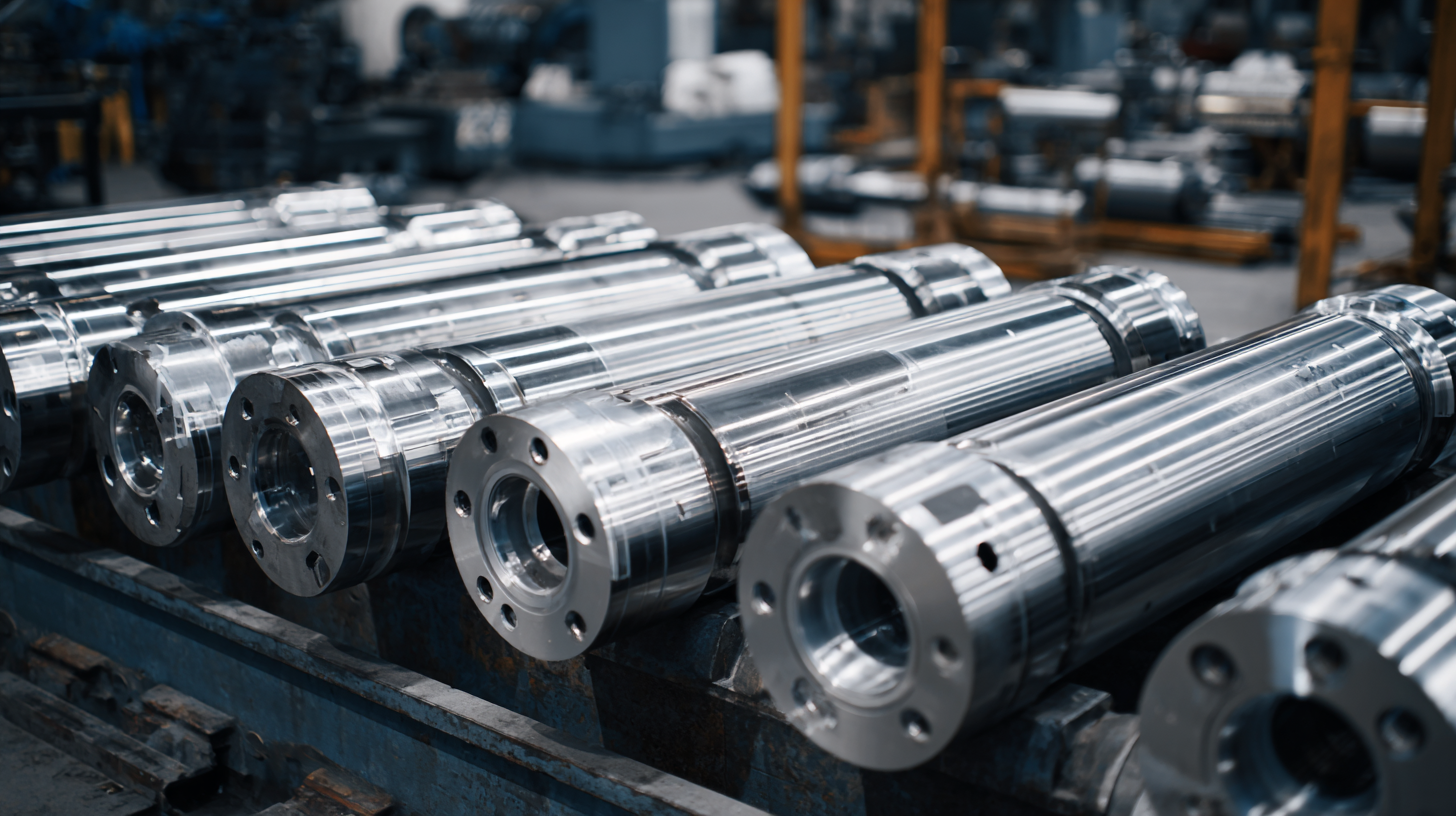
Moreover, forged cylinders offer superior resistance to environmental factors such as corrosion and wear. This durability is essential for industries where components face harsh operating conditions or extreme environments. By opting for forged cylinders, manufacturers can ensure a longer lifespan for their products, thus enhancing customer satisfaction and loyalty. Overall, the adoption of forged cylinders not only elevates the quality of end products but also contributes to a more efficient manufacturing process, supporting long-term success in a competitive market.
Forged cylinders have become a cornerstone for many manufacturers looking to enhance their production processes. One of the primary benefits is their cost-effectiveness. Although the initial investment might seem higher compared to other methods, the long-term savings from reduced maintenance and extended service life make forged cylinders a smart choice. They provide superior strength and durability, which in turn reduces the need for frequent replacements, ultimately lowering overall operational costs.
Tips for manufacturers looking to implement forged cylinders include conducting a thorough cost analysis to highlight potential savings. Compare the lifecycle costs of forged cylinders against traditional options, considering factors like downtime for replacements and maintenance requirements. Additionally, it’s crucial to choose a reputable supplier to ensure quality, as high-quality forged cylinders will perform better and last longer.
Another important aspect is to properly train your workforce on the unique properties and handling of forged cylinders. This investment in training can enhance operational efficiency and safety, minimizing the risk of damage during installation or use. By fostering a knowledgeable team, manufacturers can optimize their use of forged cylinders, leading to even greater cost savings and overall success in production.
This chart illustrates the various factors that contribute to the cost-effectiveness of implementing forged cylinders in manufacturing processes. Each factor represents its impact on overall manufacturing efficiency, showcasing the importance of forged cylinders in reducing costs and improving productivity.
The modern manufacturing landscape demands components that not only withstand rigorous use but also enhance operational efficiency. Innovations in forged cylinder technology have risen to meet these demands. According to a report by Markets and Markets, the global market for forged steel is projected to reach USD 37.4 billion by 2025, growing at a CAGR of 5.5%. This growth is largely driven by advancements in manufacturing processes that improve the durability and performance of forged products.
Recent technological advancements have introduced new techniques, such as closed-die forging and precision machining, which result in superior mechanical properties and minimize waste. A study from the Journal of Materials Processing Technology highlights that forged components exhibit up to 30% better tensile strength compared to cast counterparts, making them indispensable in high-stress applications across industries like aerospace and automotive. Moreover, the introduction of computer-aided design (CAD) systems has enabled manufacturers to optimize the design and production of these cylinders, leading to faster turnaround times and reduced costs. As forged cylinder technology continues to evolve, it plays a pivotal role in boosting the competitiveness of modern manufacturing.
| Reason | Description | Industry Impact |
|---|---|---|
| Increased Strength | Forged cylinders offer superior strength due to the alignment of the metal's grain structure. | Affects construction and heavy machinery industries by improving durability. |
| Enhanced Reliability | Minimized risk of failure under stress compared to cast cylinders. | Critical for aerospace and automotive industries where safety is paramount. |
| Weight Reduction | Optimal material usage allows for lighter designs without compromising strength. | Benefits the transportation industry, improving fuel efficiency. |
| Cost Efficiency | Long-term savings due to reduced maintenance and replacement costs. | Positive impact on manufacturing budgets across various sectors. |
| Versatility | Can be designed for various applications, from small components to large machinery. | Facilitates innovation across multiple industries. |
| Improved Surface Quality | Forging improves surface finish and reduces need for further treatment. | Enhances product quality in consumer goods and machinery. |
| Sustainability | Forging processes often use less energy and reduce waste compared to casting. | Supports green manufacturing initiatives across industries. |
